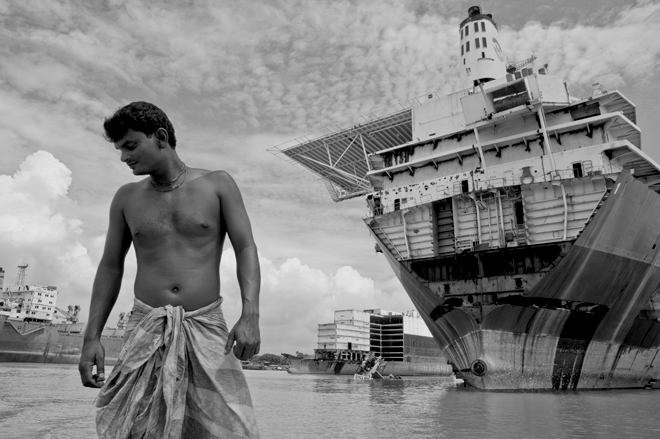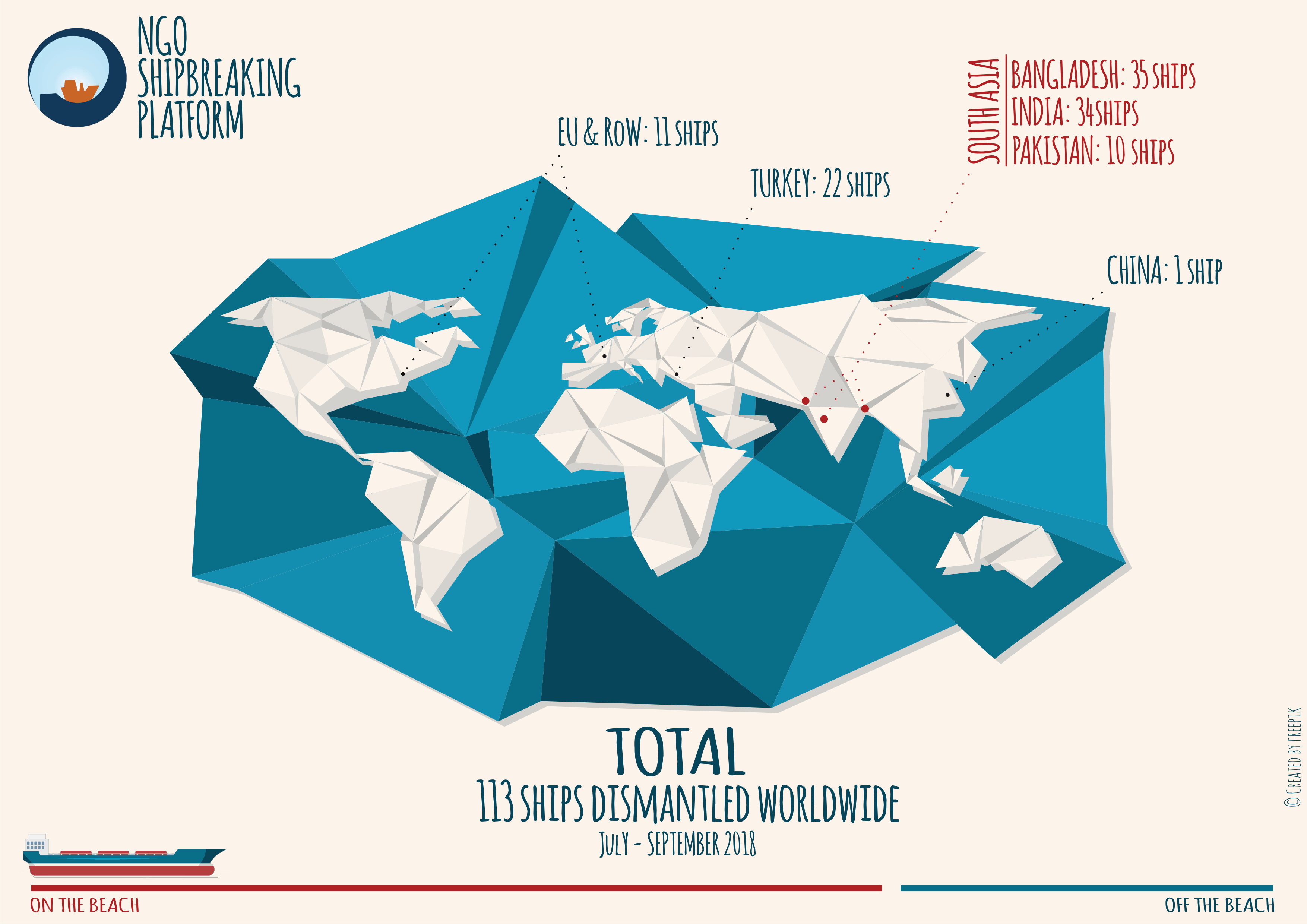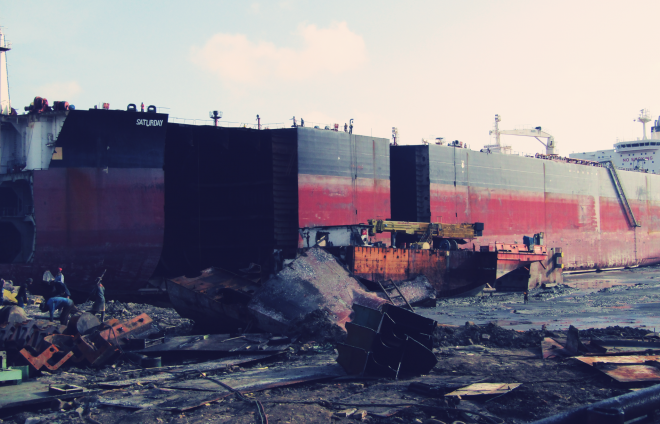NGOs call for the relocation of the industry to facilities equipped for safe and clean recycling
On 11 October a tanker caught fire at the Gadani shipbreaking beach that holds a deplorable record of life threatening accidents. Fortunately, no casualties were recorded. Only a few days later, on 14 October, yet another oil tanker named KRITI (IMO 9270737) caught fire, this time injuring seven workers, three of which are in a critical condition.
The Platform has reported a series of accidents following the catastrophic explosion that killed at least 29 workers and injured 58 on the 1st of November 2016. Since then, there have been at least five more fires caused by unsafe cutting operations. Difficult access for firefighters, a severe lack of ambulances and no hospital in the close vicinity of the yards aggravate the conditions, as reported by trade unions.
Following the major blast in 2016, Pakistani authorities imposed a ban on the import of tankers in addition to a ban on cutting operations. The ban on import was however lifted in April 2018 after 18 months’ freeze. Due to the use of the low-cost method of beaching and the favorable steel market conditions, the Gadani yards offer high prices for end-of-life ships, and soon 22 tankers were waiting for the cutting ban to also be repealed. One local breaker nonetheless started scrapping the VLCC ADA before the authorities lifted the cutting ban, and a fire erupted onboard the tanker in July. Despite the accident, and the fact that few measures had been put in place to ensure safe working conditions, the government issued cutting permissions in late August, putting the life of the workers in danger and prompting the import of additional vessels.

In contrast to the fire that broke out in July onboard a vessel that had not received cutting permission, the Balochistan Environmental Protection Agency (EPA) had approved the breaking of both vessels that caught fire last week. The two accidents underpin that not only the ship owners and yard operators fail to take necessary precautions, but also that the Balochistan EPA acted negligently when approving the work to start. Fires occur when vessels that are not properly cleaned from highly inflammable residual oil are cut with blowtorches.






